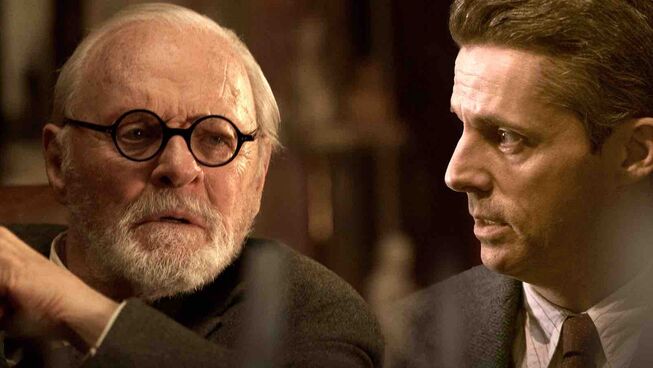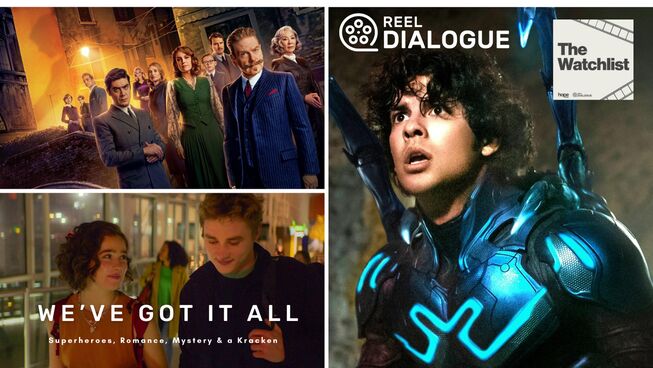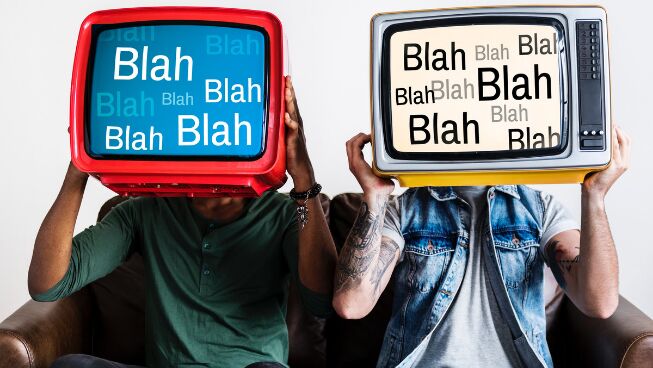Should we cut offensive films?
How do we deal with films from our past with offensive and objectionable content? Two film and media experts tackle the big issues raised with the cancelling of films like Gone with the Wind. We explore the power and influence of film and consider how we can properly deal with uncomfortable elements of our past and achieve lasting change.
Our guests: Russ Matthews. Russ loves film and enjoys engaging in discussions about the latest cinema offerings. Russ is a film critic with Reel Dialogue, a creative engagement between film and the Christian message.
Cliff Philpiah. Cliff is a senior photographic correspondent and press photographer for a global news service and is also a great lover of movies.
Check out the video from our Monday night Facebook Premiere (you can still access the video after the Premiere).
Invest in bigger thinking for as little as US$1 per podcast on Patreon.
Bigger Questions asked in the conversation
Now both of you connected over your love of film - Russ you’re a film critic - do you get bored of watching films every week?
Cliff - you’re a photographic correspondent - so do you mind if the pictures move so to speak? So you don’t mind a film?
Smaller questions
Now to kick off Bigger Questions we like to ask some smaller questions - just to get us thinking. Today we’re talking about the big issues raised by films with controversial or objectionable content being removed from streaming platforms in light of the recent killing of George Floyd and the subsequent black lives matter rallies.
This is a big and important question, but I thought we’d start with a slightly smaller one about a kids TV program that some were apparently calling to be cancelled. Ok, now this was on Twitter so that needs to be taken into account - yet recently there were a number of tweets calling for this kids show to be axed. Two of the tweets said:
you’ve already brainwashed a bunch of kids into thinking law enforcement is a noble and just profession. better to scrap production forever if you want to make lasting change
Every show that makes police seem like a positive force in society is bad & should be cancelled starting with ones for children. This should not be a controversial opinion.
So what was the TV show they were tweeting about?
Now these were on Twitter - so it’s hard at times to work out if people were serious or satirical.
Exploring Cancelling films and media
Now this might be satirical, but this does lead us on to some bigger questions about films or TV shows which have been taken down in recent weeks by streaming platforms in response to the Black Lives Matter movement. Netflix removed a series of offensive or objectionable content involving blackface.
Things like Gone with the Wind, An episode of Fawlty Towers, Summer Heights High and other Chris Lilley works, 30 Rock and Cops have been removed from streaming platforms because of the link with racism and the depiction of police. So how do you react when you hear organisations or advocates wanting to cut films like Gone with the Wind?
Now from the marches to the media. And we're not speaking about the whole BLM movement, but specifically the trend to remove certain films. What do you think is behind this desire to remove objectionable and offensive content?
There isn’t a question that this is objectionable content is there?
What do you think is achieved by eliminating dated depictions of racism, slavery and injustice?
Power of film
So Russ, why do you think films were targeted? What does this say about the power of film or of media more generally?
Do you think more accurate representation in the media is important in combating things like racism?
Challenges of history
One of the issues in this debate is the uncomfortable reality of history and things in our past. This issue is perhaps also connected to the desire to remove objectionable statues depicting slave owners. Indeed one commentator made the observation:
Chris Lilley just got taken down from Netflix like a racist statue
So do you think there is a connection between cutting films and taking down statues?
What is driving this desire to remove uncomfortable historical artefacts?
Is this because there are things in history which are uncomfortable or perhaps even shameful?
What about specifically Gone with the Wind? It’s been described as an historical artefact? How do you treat an artefact like that?
The creator of the TV comedy show 30 Rock which included some episodes involving blackface said that the episodes are “best taken out of circulation” and apologized “for pain they have caused.” Removing these is potentially a start? But is it enough?
Cliff - Is racism something that you have personally experienced?
Is putting a warning on the front - will that help? Or do we need something deeper?
A vision of grappling with history: forgiveness and grace
Perhaps the Christian message offers a vision for how to engage with an uncomfortable past. Indeed the experience of a key biblical figure, the Apostle Paul, shows how the Christian message helped him deal with his unpleasant past. He spoke about his experience of the risen Jesus in 1 Corinthians 15:8-10,
Last of all, as to one untimely born, he appeared also to me. For I am the least of the apostles, unworthy to be called an apostle, because I persecuted the church of God. But by the grace of God I am what I am, and his grace toward me was not in vain. On the contrary, I worked harder than any of them, though it was not I, but the grace of God that is with me.
So Russ, it appears he had his own history of shame, he persecuted the church which he subsequently joined, but the memory of this seemed to stay with him in some way - he thought he was unworthy to be called an apostle because of what he did in the past. Yet he could still stand as an apostle by the grace of God. What do you make of that, is the grace of God that powerful?
It seems that the grace of God meant he didn’t need to delete his history - yet he could still confront it and acknowledge it?
Is the grace of God connected to the idea of forgiveness and dealing with his past?
So does this help us reflect on uncomfortable things in our past?
Cliff - does this vision of engaging and being free from the past that the Apostle Paul experienced in the Chrsitian message - does this seem appealing at all?
The Big Question
So Russ and Cliff - should we cut offensive films?












